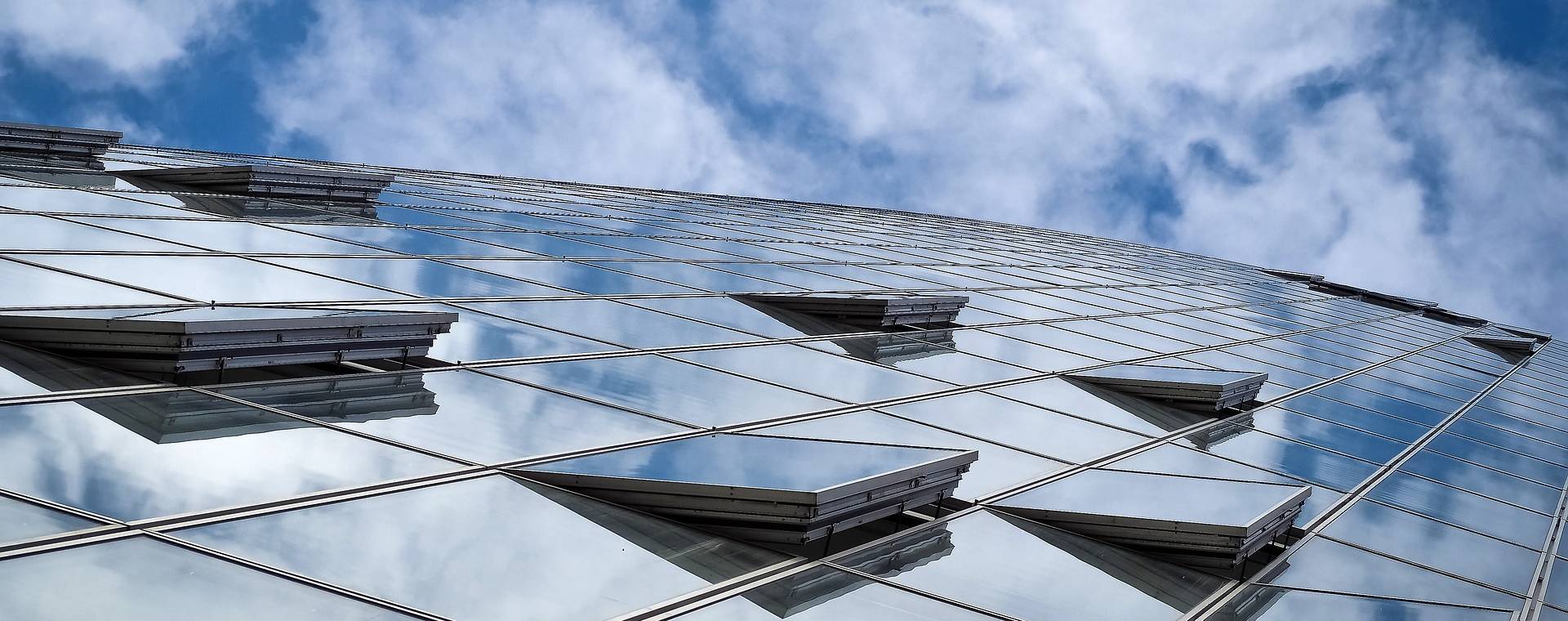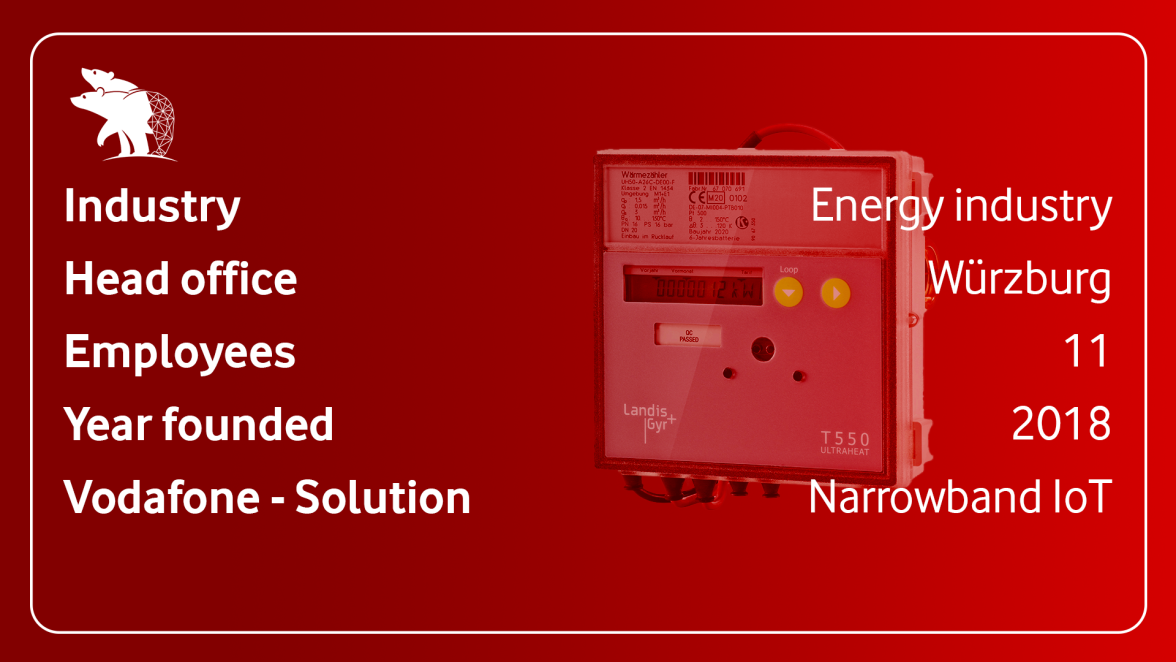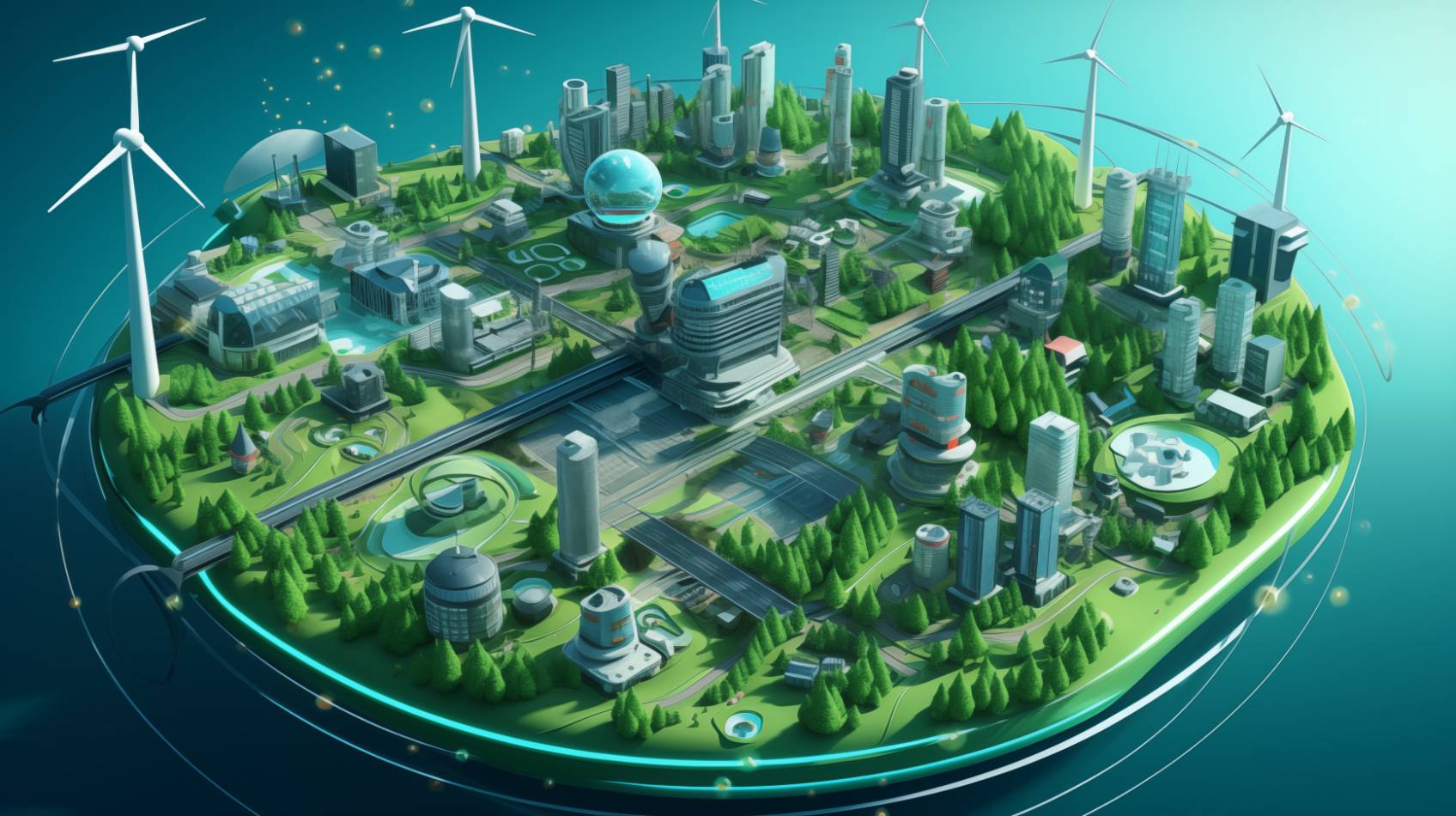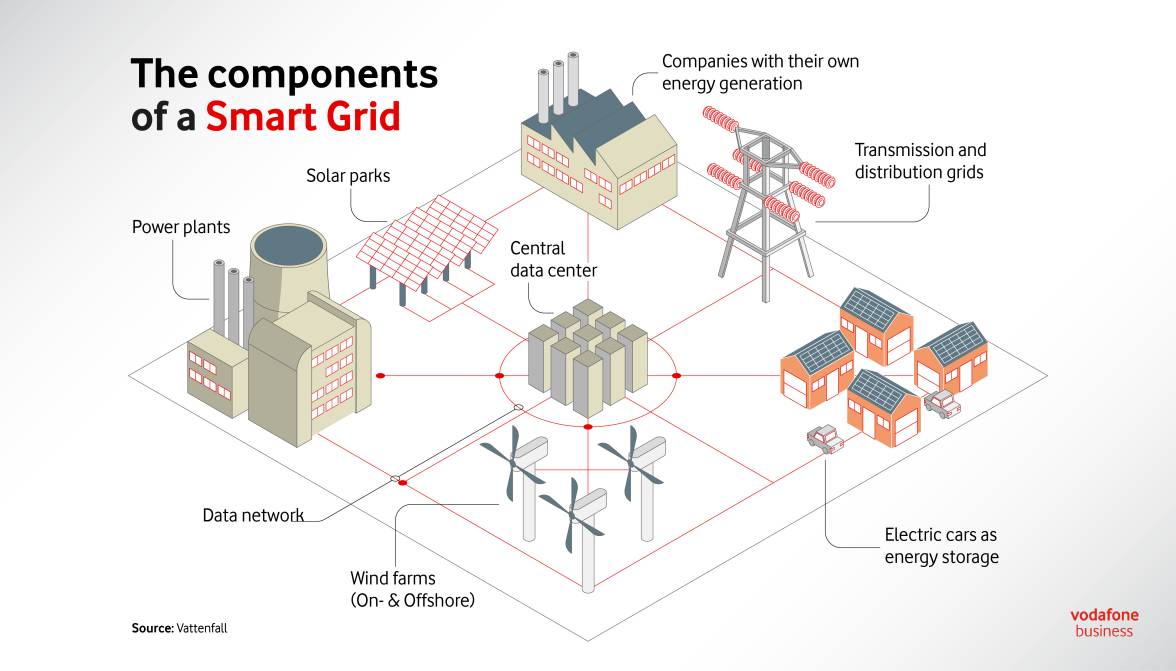

Smart energy for all
Efficiency through transparency
How baeren.io makes consumption meters intelligent
How baeren.io makes consumption meters intelligent
Efficiency through transparency
Legal requirements for greater consumption transparency and increased energy savings are making solutions mandatory for building owners, energy service providers, municipal utilities and other stakeholders. With IoT from Vodafone, baeren.io provides its customers with timely and reliable energy consumption data via remote reading.


Quelle: BMWK
The Challenge
Getting energy consumption under control
End-consumers and businesses are facing major changes in the energy sector: in July, the EU Council of Energy Ministers adopted the revised Energy Efficiency Directive (EED). It commits EU member states to reducing their final energy consumption by at least 11.7% by 2030 compared to 2020. These EU requirements are now being transposed into national legislation. In concrete terms, this means that data on heating energy consumption must be made available to users in a timely manner.
The amended Heating Costs Ordinance should also make consumption transparent for district heating supplies. All these measures are intended to motivate people to use resources such as heating energy and water more consciously and to reduce consumption - an important step on the way to a sustainable energy supply. Depending on the type of heating system, implementation is required at different times - but in all cases, smart, networked meters are essential.
Lack of transparency
The Company
Specialised in the collection of meter readings
Founded in 2018 and based in Würzburg, Germany, baeren.io specialises in the collection, digital processing and provision of meter readings and other sensor data. The company offers solutions based on various device manufacturers. baeren.io aggregates the collected data in its own cloud and makes it available for transfer to customers' systems via interfaces developed in-house. baeren.io offers its solutions for the intelligent collection and processing of sensor data in various sectors - in addition to facility management and the energy industry, for example, also in agriculture (smart agriculture), healthcare (smart health) and smart cities.
With the use of LPWAN technologies, its own cloud and intelligent interfaces, baeren.io offers metering service providers, municipal utilities and energy suppliers the prerequisites to meet legal requirements. The company's particular expertise lies in collecting and processing data from a wide range of meter types and making it available to its customers' billing systems. baeren.io positions itself as a universal service provider, offering installation, commissioning and data provision from a single source. The company uses Vodafone Business' NB-IoT to connect its solution.


The Solution
From meter reading to managed data flow
baeren.io is currently experiencing its strongest growth in the collection and processing of energy consumption in private, commercial and public buildings of all sizes. "Our expertise lies in handling the meter data we collect," explains Björn Borst, founder and managing director of the company.
"We rely on Vodafone Business' Narrowband IoT to seamlessly and fully automatically feed the data from the consumption points into our customers' IT systems," says Björn Borst. NB-IoT is the first choice, especially when the meters or sensors are not concentrated in one place, such as inside a building. It is also particularly suitable for connecting sensors and meters installed in basements or technical rooms, for example, because it can transmit signals through thick concrete walls and similar obstacles.
Provide consumption data promptly and reliably
The Advantages
At a glance
With Vodafone providing the network infrastructure and the required IoT SIM card easily inserted during installation or directly from the factory, online connectivity is fast and reliable. SIM cards are conveniently managed by baeren.io via Vodafone Business' GDSP (Global Data Service Platform).
Robust wireless connection to the cloud platform
works in challenging environments such as basements
Support for all types of meters
and compatibility with multiple IT and billing systems
Timely provision of consumption data
to meet current regulatory requirements
Activation and provisioning of IoT SIMs
via the Global Data Service Platform (GDSP)
5 questions for Björn Borst
Virtually no alternative

5 questions for Björn Borst, founder and CEO of baeren.io
"There is virtually no alternative to digital data capture"
Björn Borst is the founder and CEO of baeren.io. The meaning of his first name in Scandinavian languages (Björn = "bear") gave the company, which specialises in managing meter data flows, its name. Here he talks about the benefits of IoT and the advantages of digital solutions for data collection.
Mr Borst, what role does IoT networking of meters and other sensors play in your business?
Björn Borst: Collecting the readings and transferring them to our cloud is absolutely critical to our business model. Our expertise then lies in handling and managing these data and data flows and making them available to our customers' systems. But at the beginning of this chain is, of course, the reliable collection of the input data.
Why did you choose Vodafone Business' Narrowband IoT to collect this data?
Björn Borst: Depending on the application and situation, we rely on different technologies for networking, including LoRaWAN, GSM, wM-Bus, Sigfox or Ethernet. However, for the typical locations of heat and other energy consumption meters, which are often installed in basements or plant rooms, narrowband IoT has proven to be the most suitable due to its high building penetration. And we see Vodafone as the provider with the most experience in the German market. Our cooperation is based on trust, efficiency and partnership.
Capturing the readings and transferring them to our cloud is critical to our business model.

Björn Borst, founder and CEO of baeren.io
What has been your experience with this IoT solution?
Björn Borst: Narrowband IoT is running reliably and smoothly, which is exactly what we expected from the technology. Managing the IoT SIM cards via Vodafone's GDSP dashboard is also easy and reliable. So Vodafone is providing us with important building blocks to deliver our end-to-end solution to our customers.
What advantages does digital data collection via remote reading offer your customers?
Björn Borst: In the medium term, there is virtually no alternative. But it already provides the basis for better customer service, higher savings and predictive meter maintenance. Last but not least, we are actively supporting climate protection.
What are your next steps?
Björn Borst: Legal requirements, such as the entry into force of the EU Energy Efficiency Directive (EED) and the FFVAV for local and district heating networks at the end of 2026, mean that we are unlikely to run out of work in the foreseeable future. We also want to use this data to help our customers save energy and thus make our contribution to reducing CO2 emissions.
Mr Borst, thank you very much for this interview.
IoT for the smart grid
Smart grids for the energy revolution

Smart grids for the energy revolution
IoT for the smart grid
Efficient, adaptable, digital: this is how energy experts see the power grid of the future. The Internet of Things will play a central role in the transformation of existing energy networks.
The vision is that wireless devices such as sensors, radio modules, gateways and routers will connect wind and solar power plants, electric vehicle charging stations, buildings and factories to form an efficient, flexible system. This model for the next generation of energy systems is known as a "smart grid".
Smart grids play a key role in achieving the energy transition and combating climate change. Renewable energy sources are subject to strong fluctuations. To compensate for this, excess electricity is temporarily stored in electricity storage systems. Electric vehicles, which are currently connected to the grid, can also be used for this purpose. Networked, digital metering systems are essential for balancing supply and demand: intelligent meters, also known as smart metering systems, record the electricity consumption of households and businesses and measure the quantities fed into the grid in real time. The networking of meters is made possible by IoT technology such as Narrowband IoT.


Cheaper electricity thanks to smart grids
The benefits of smart grids for consumers are many:
Transparent prices
When there is more supply than demand on the grid, the price automatically falls. If the opposite is the case, consumers and businesses are informed in real time so they can adjust their consumption.
Fewer blackouts
Utilities also benefit from transparency: detailed information on the status of the grid makes it easier to anticipate increases in demand and prevent power outages.
Consumers become producers
The smart grid is fundamentally democratic: everyone can become a power producer. Anyone who produces an abundance of solar or wind energy at home can feed it into the grid and be paid for it.
Greater security
In principle, smart grids are also less vulnerable to outages caused by natural disasters or terrorist attacks because of their decentralised structure: if part of the grid fails, energy can be quickly diverted from the intact areas.
Legislation requires swift action
The amendment to the Energy Efficiency Directive (EED) was adopted at European level in 2023 and obliges EU member states to reduce their energy consumption by at least 11.7 per cent by 2030 compared to 2020. Experts see smart grids as an essential building block for achieving this goal. Cloud-based IoT platforms are key to analysing and visualising the data collected by sensor-equipped meters.
As one of the world's leading IoT companies, Vodafone is at the forefront of this transformation process. If you too want to prepare your business for the future, optimise your energy consumption and reduce costs, our experts are ready to advise you free of charge.



